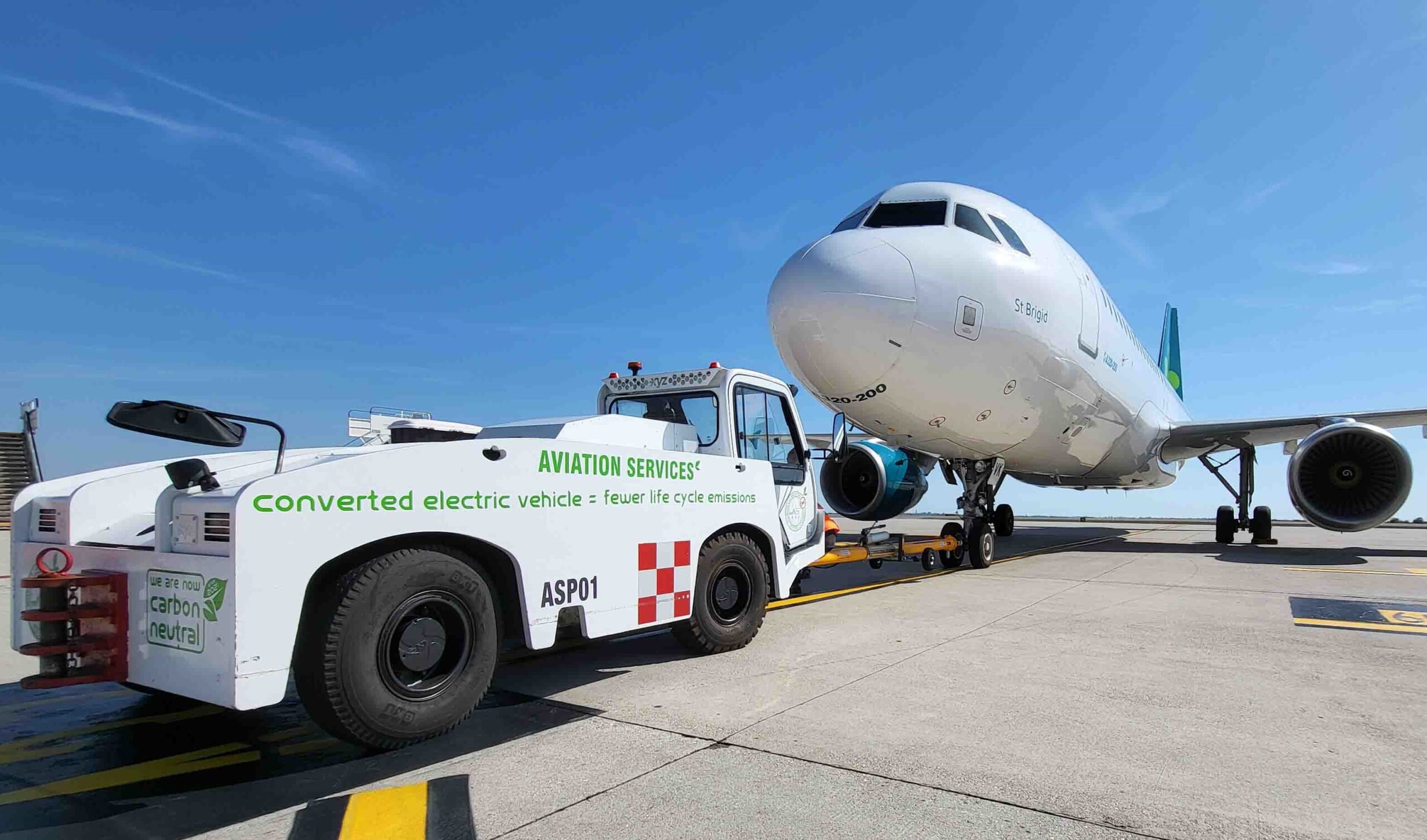The International Air Transport Association (IATA) has stated that electric ground support equipment (GSE) is one of a number of “crucial” sustainability measures for the aviation industry to implement to meet its climate commitments.
In a new policy document, the body outlines that sustainable airside equipment will have a significant part to play in decarbonising aviation through ground operations.
According to IATA, electric GSE is one of the measures the industry must take to support the drive towards its Fly Net Zero initiative, a commitment made by airlines to achieve net zero carbon emissions by 2050.
Its Ground Ops of the Future document claims: “Transitioning away from traditional diesel and petrol fuels to electrically powered GSE and biofuels is a potential solution to reduce emissions and improve air quality, thereby enhancing the working conditions for ground staff.
“Adopting GSE powered by cleaner energy will contribute positively towards reduced carbon emissions and noise emissions on the ramp, thereby improving working conditions.”
IATA has commissioned a project aimed at assisting ground handlers in making a knowledgeable and well-organised transition to greener GSE power.
A recent study focusing on Europe showed that, based on an average EU country’s electrical generation emission, electrically powered GSE produce 48 per cent less carbon emissions than equipment with internal combustion engines using traditional fossil fuels when operating under the same conditions.
The study also found that, extrapolating this on a global scale and using 2019 traffic levels as a base, the ground handling industry could have reduced its carbon emissions by 1.8 million tonnes a year if the GSE were all electrically powered.
According to IATA, the industry must address the infrastructure challenges that prevent wider rollout of sustainable GSE and review electrical and fuel supply capabilities to “assess the preparedness” to integrate sustainable equipment on the ramp.
It must also review and understand carbon intensity of supplied electricity and energy tax structures to “encourage a shift” to non-fossil powered GSE.



